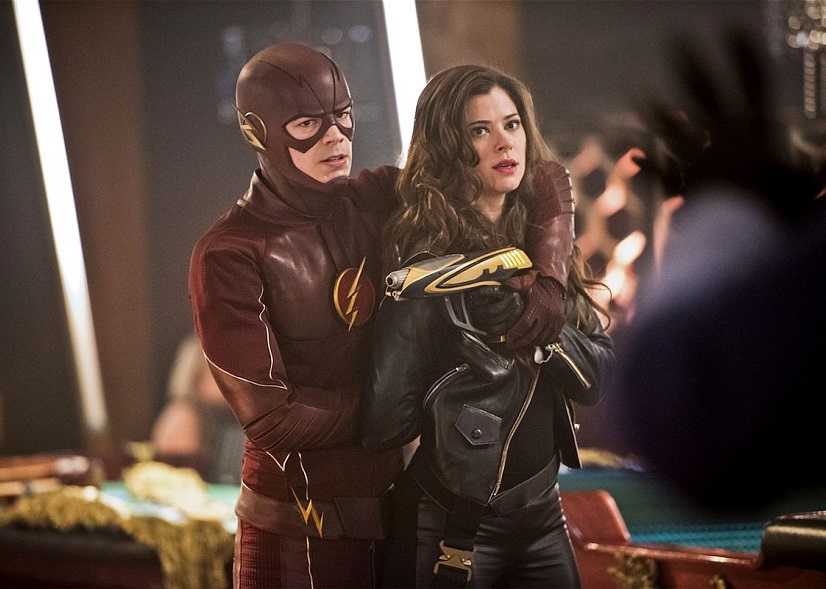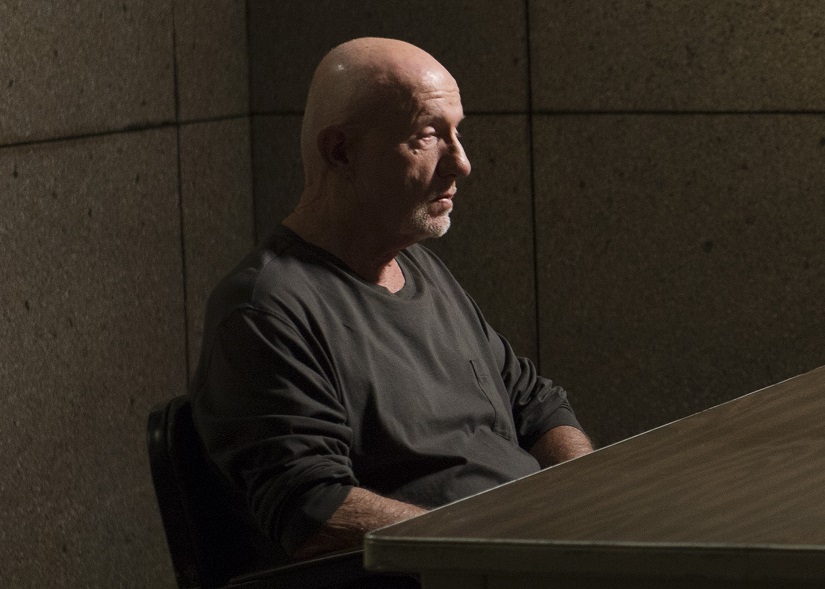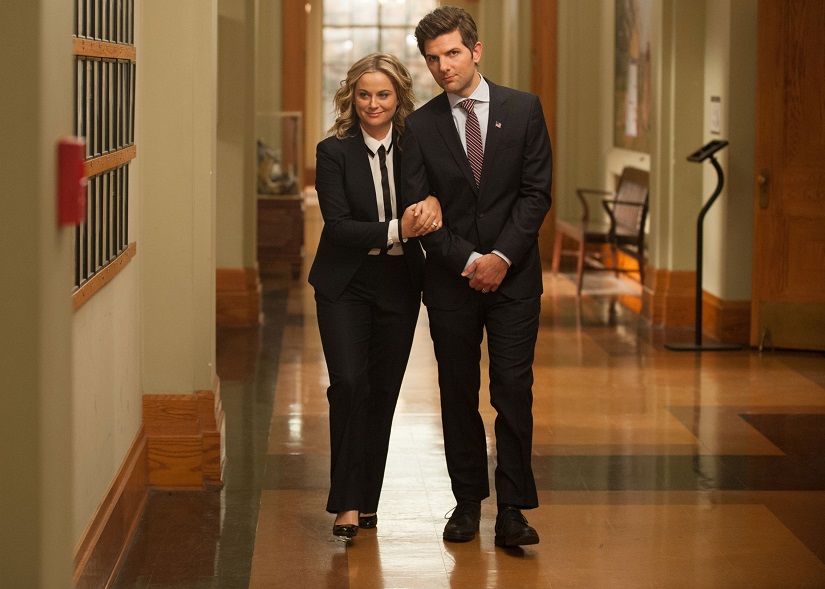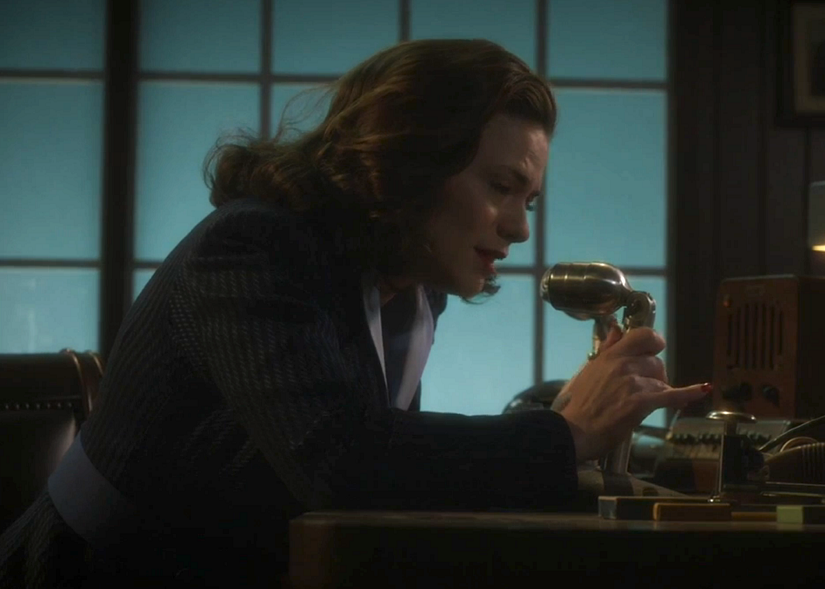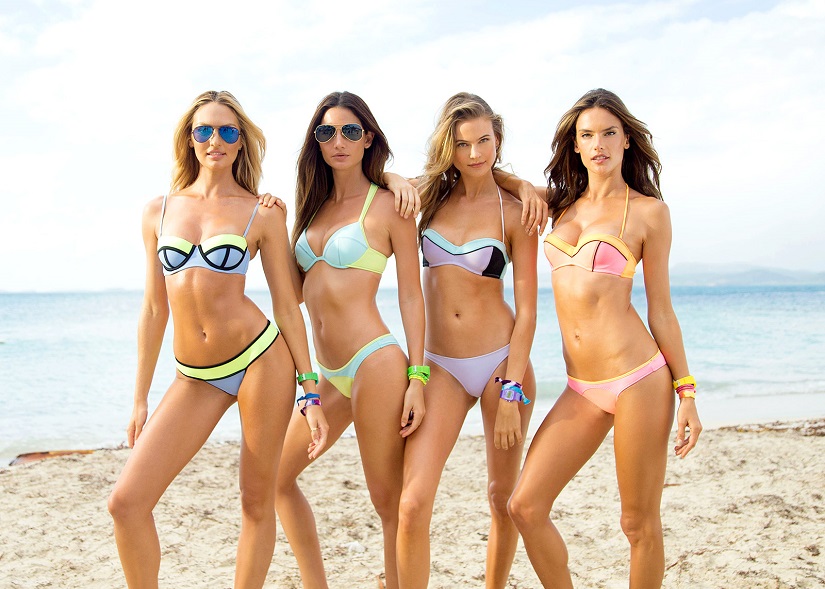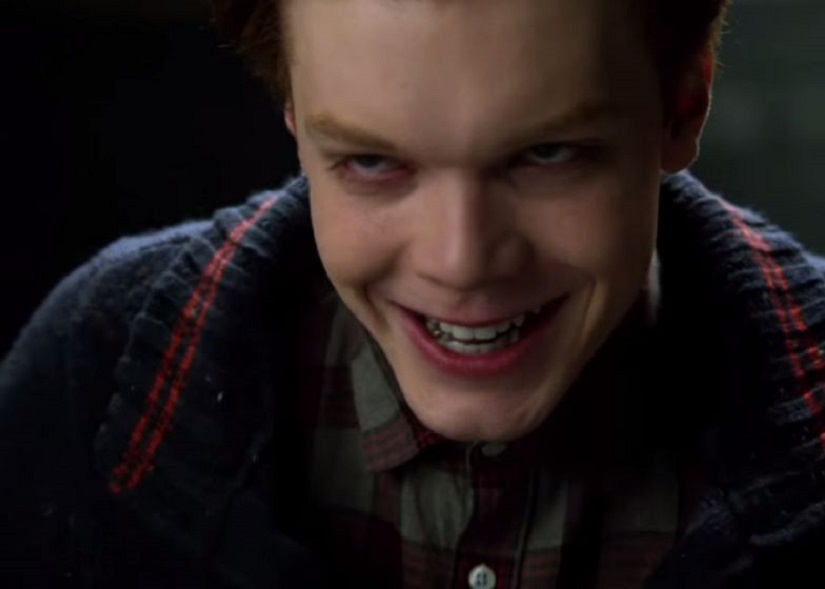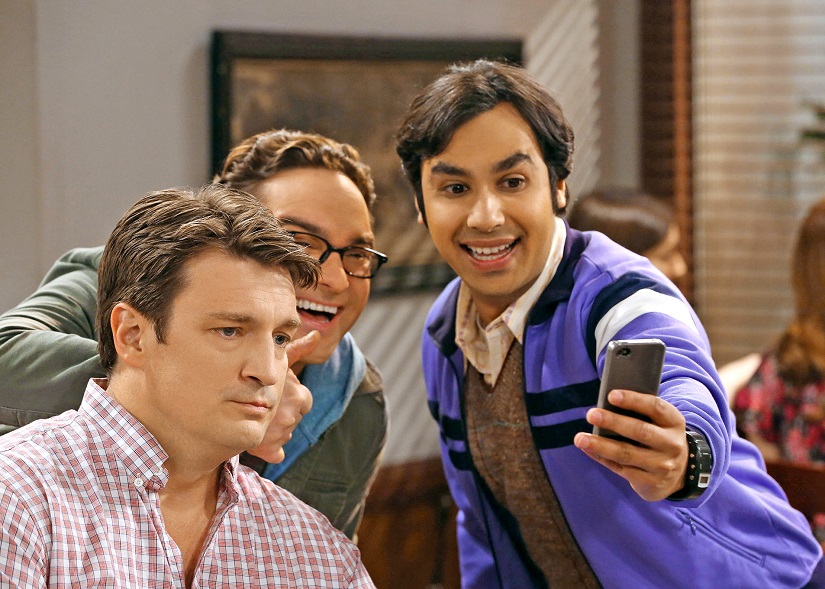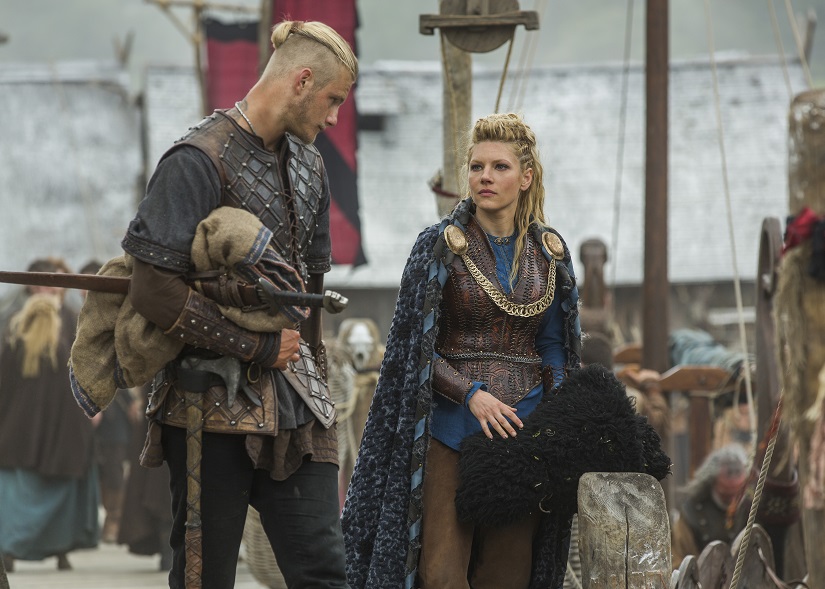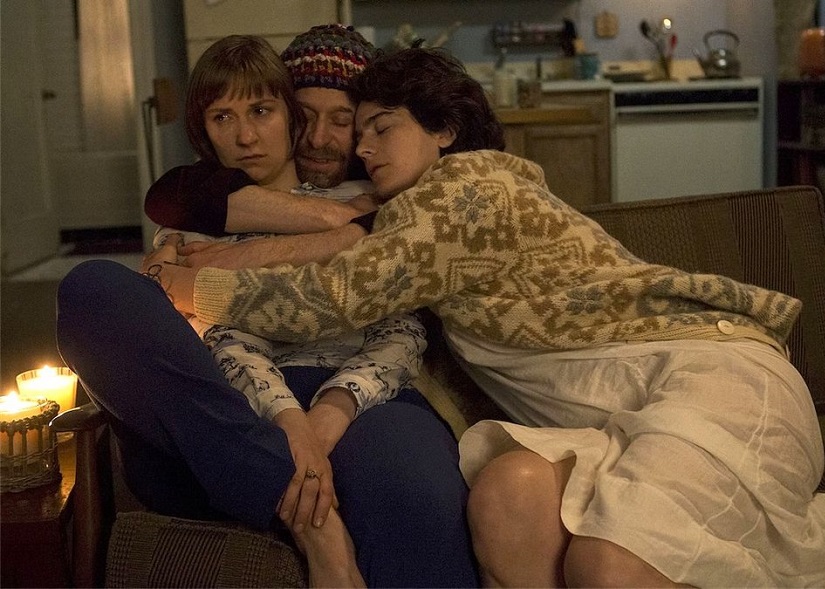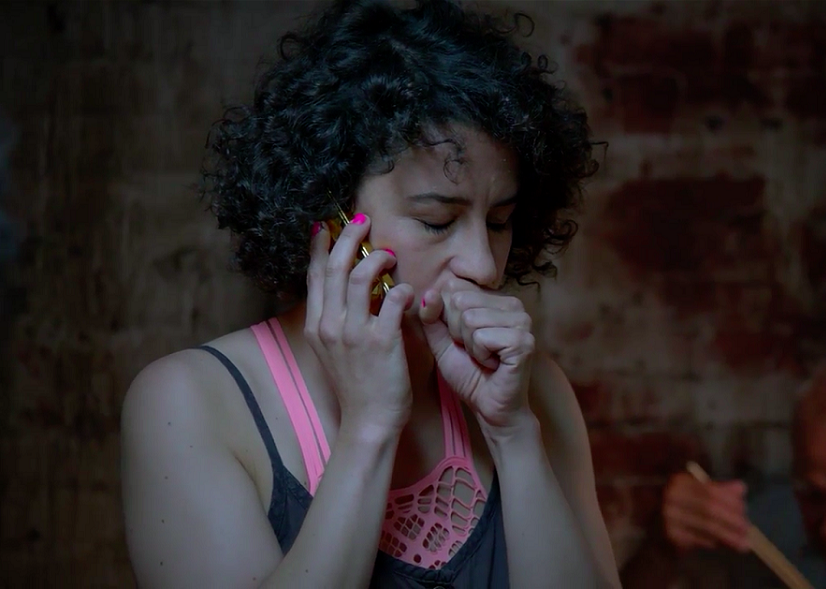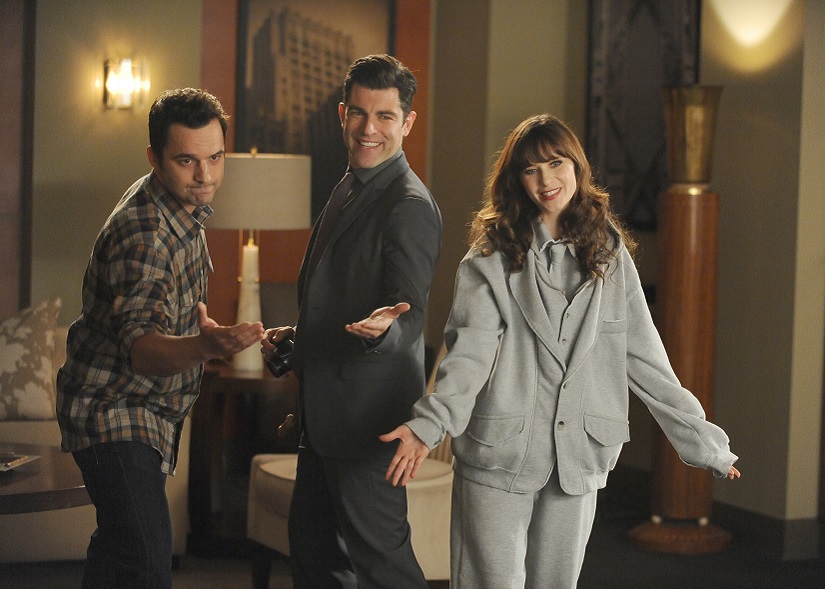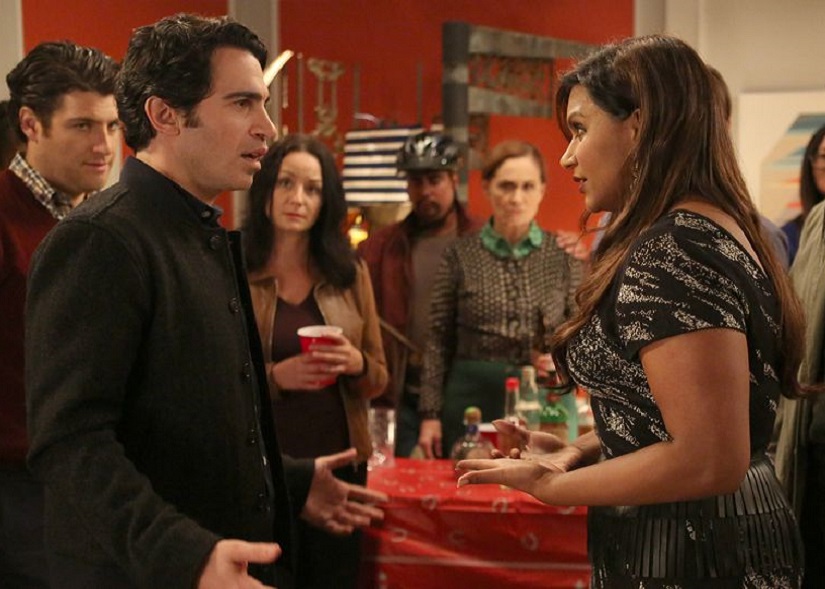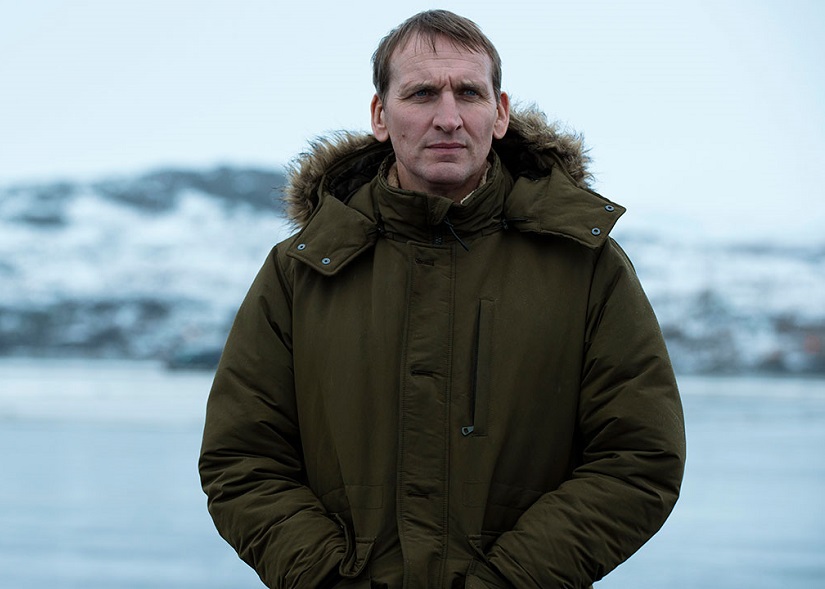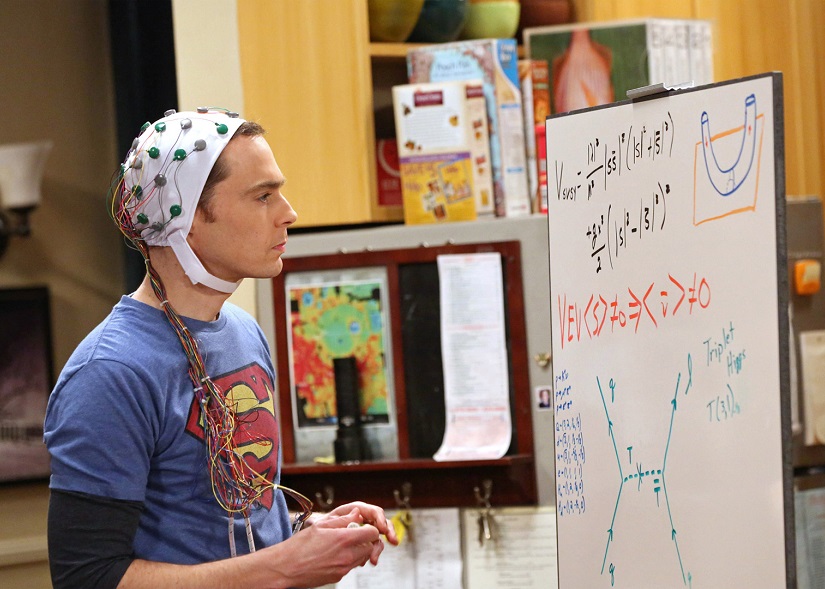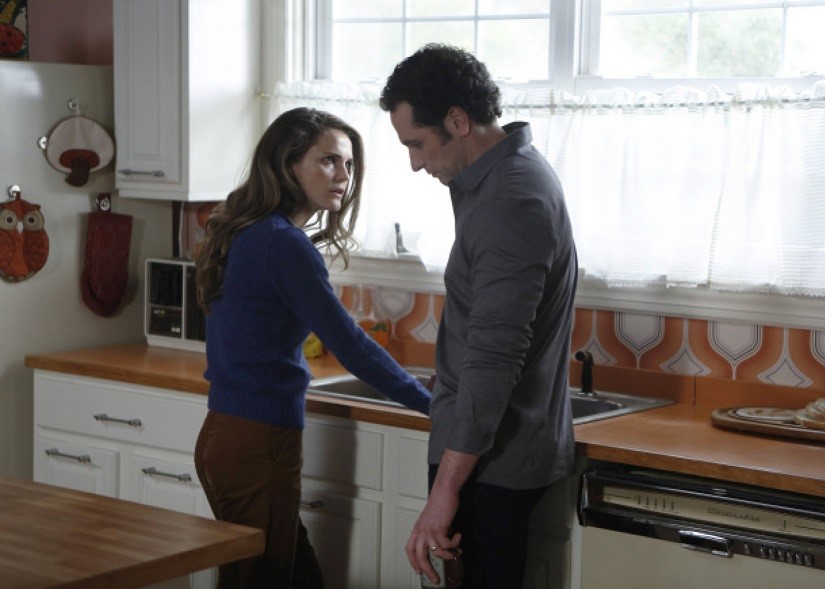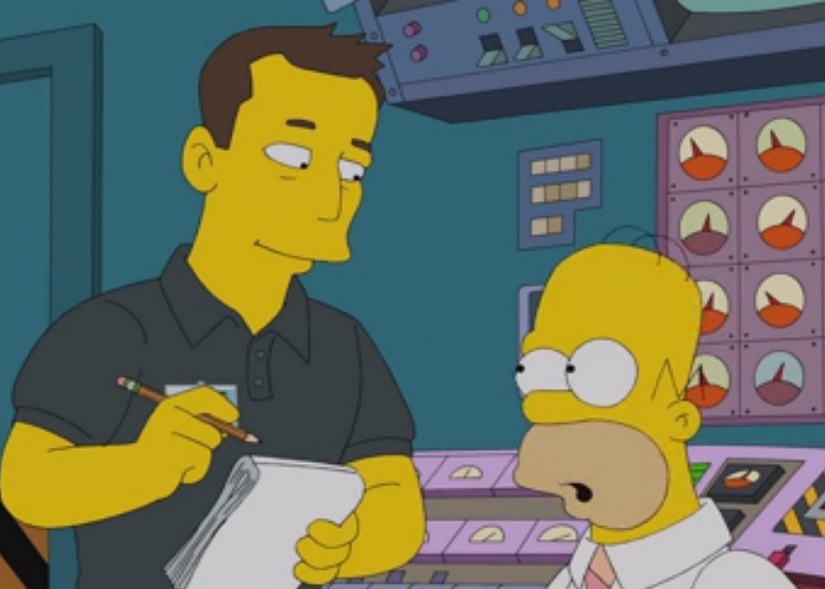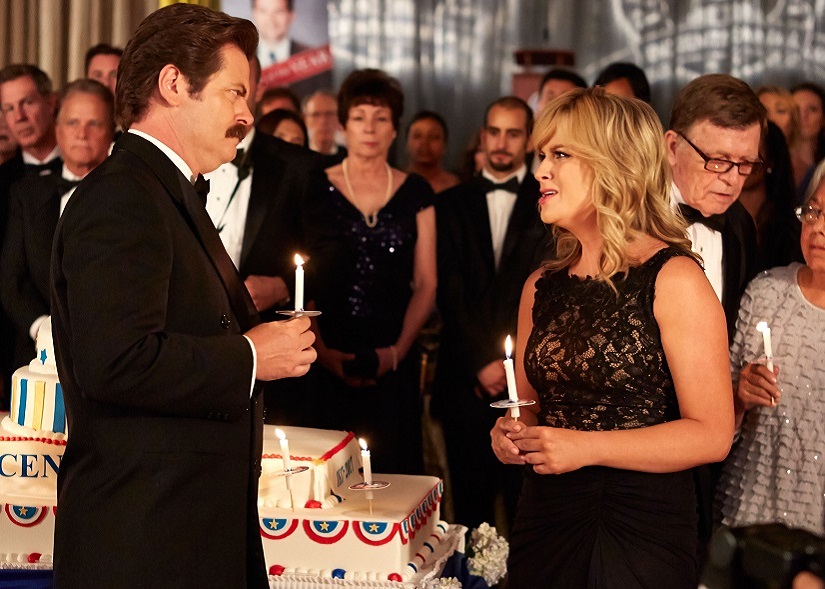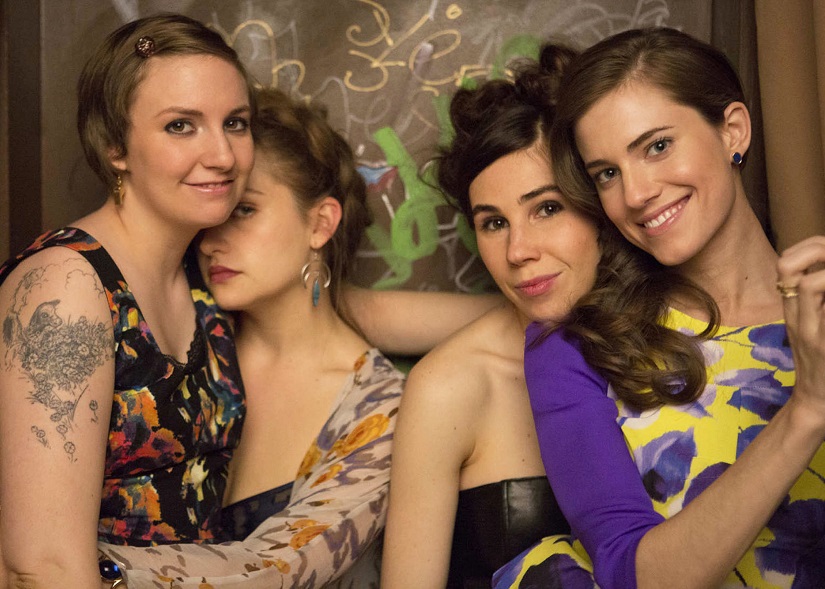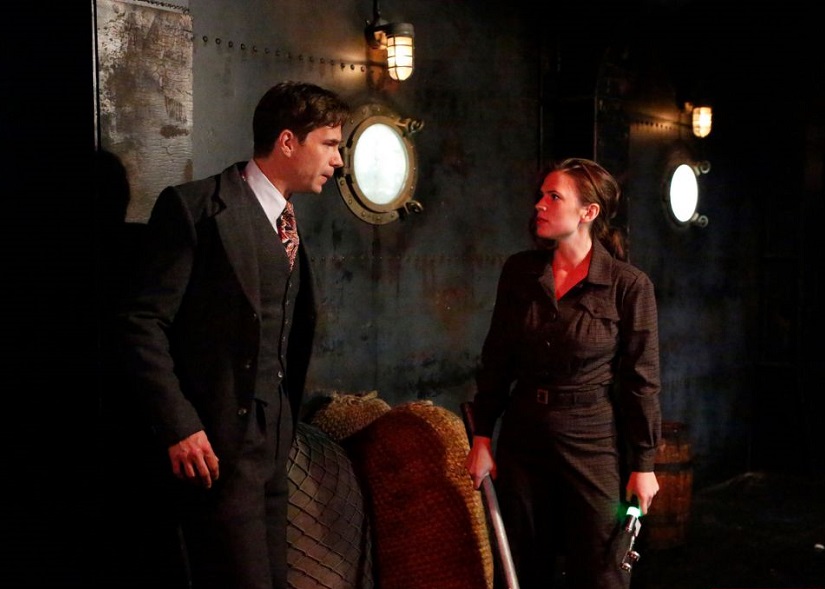[This Week In TV] The Flash; Arrow; Agents Of SHIELD
This Week in TV is a weekly feature reviewing the best, worst and most interesting episodes of television from the past seven days. The plan is to cover a wide variety of shows, but not always the same ones each week, so let us know in the comments which ones you’d particularly like to read about. This week takes on a comic book theme, with The Flash heading back in time, Oliver Queen suffering an identity crisis in Arrow, and, um, SHIELD suffering an identity crisis in Agents Of SHIELD.
This Week In TV: Better Call Saul, The 100, Bates Motel
This Week in TV is a weekly feature reviewing the best, worst and most interesting episodes of television from the past seven days. The plan is to cover a wide variety of shows, but not always the same ones each week, so let us know in the comments which ones you’d particularly like to read about. This week sees Better Call Saul reveal the tragic history of one of its most beloved characters, the second season of The 100 come to a stunningly bleak conclusion, and Norman Bates being promoted to manager of the Bates Motel.
[This Week In TV] Parks & Recreation, Agent Carter, Victoria's Secret Swim Special
This Week in TV is a weekly feature reviewing the best, worst and most interesting episodes of television from the past seven days. The plan is to cover a wide variety of shows, but not always the same ones each week, so let us know in the comments which ones you’d particularly like to read about. This week sees the series finale of Parks & Recreation, Agent Carter reach the end of its eight-episode run, and Victoria's Secret draping semi-naked women across our televisions just because it can.
Parks & Recreation - "One Last Ride"
The outpouring of grief in certain corners of the internet over Parks & Rec's final farewell would seem disproportionate on the surface for a show which never did especially well in the ratings and whose output varied in quality over its final few seasons. It wouldn't be the first show to be lauded by a small but passionate internet fanbase - one need only look to Chuck or Community for shows whose very survival depended on it - but Parks seems to have struck a more personal and emotional chord with its fanbase than almost any other show to have gone before. The most passionate tributes to 30 Rock, for instance, came from women inspired by Tina Fey giving her sex a real voice in the television comedy landscape and, through her magnificent alter-ego, Liz Lemon, permission to be every bit as ridiculous as the men around her. Parks & Rec wasn't shy about its feminist leanings, but its audience seems to reach far beyond those narrow parameters: whether men or women, fans or critics, feminist or apolitical, even the Indiana tourist board, it seemed that no matter where you looked, love for the show was all around.
While I can hardly pretend to speak for such a wide variety of people, my personal feeling is that the intense passion so many felt for the show most likely grew out of one of its simplest, but most gently powerful characteristics: it was a show which, at its core, was kind. Leslie Knope may have overcome no shortage of cartoon villains during her time in Pawnee - Tammy II and Councilman Jamm being among the most memorable - but her greatest triumphs were rooted in empathy and understanding. Fiercely competitive and ambitious though Leslie was, her willingness to listen and make the right choices stood her apart at a time when the TV landscape was dominated by comedy born out of cynicism and drama portraying tortured anti-heroes navigating bleak ethical landscapes.
Parks & Rec was a beacon of light, embodied first and foremost by Leslie but enhanced by the affectionate and well-meaning doofuses she called her friends and colleagues, each representing their own corner of American life. In Ron f**kin' Swanson, she found her closest friend in a man seemingly her polar opposite: a gruff, anti-social conservative whose keenest interest in big government was trying to sabotage it at every opportunity, all while cultivating TV's greatest moustache. From Ann, April and Andy came the voices of youth trying to find their place in the world (or in Chris Pratt's place, the galaxy); Tom and Donna were livewire portrayals of people from underrepresented races making the American Dream their own; Ben was a positive voice for nerddom, Chris for the high-achievers. Pawnee was a place where everyone was welcome. Well, except Mark Brendanawicz.
As for the finale itself? Well, as has been the trend over the past few seasons, it got the sentiment right even if the pacing and humour were sometimes a little lacking. The structure, Six Feet Under inflected, meant the story moved in fits and starts and the eponymous 'last ride' never felt like much of a struggle or an achievement for any of the characters. However, as a farewell to this wonderful cast of characters, it did right by all of them, perhaps none moreso than in leaving Ron canoeing serenely across a vast lake, having found total contentment. April got one last piece of wonderful Leslie advice, Ann and Chris made a brief but charming return, and there was one last, magnificent dig at a public library. In short, it offered an hour-long encapsulation of everything which made Parks special to so many, and no-one could ask for much more than that.
Agent Carter - "Valediction"
Another feminist show to take its bow this week was Marvel's Agent Carter, which, like Parks, has enjoyed some critical acclaim even while never quite becoming as much of a ratings hit as expected. The show took a while to find its feet, leaning too heavily at first on some eye-rollingly unsubtle representations of post-war discrimination, and plotting which worked passably well for individual episodes but struggled to establish a compelling or coherent bigger picture.
What kept it on track throughout was the performance of Hayley Atwell, at times single-handedly dragging the show forward through sheer force of charisma. While Peggy's characterisation on the page was never really extended beyond a hyper-competent woman fighting for a place in a world of powerful but ignorant men, Atwell filled in the details with effortless grace, bringing humour and suggesting a sympathetic heart beating beneath her charaacter's closed exterior. While the show's one-note feminism offered more crowd-pleasing than nuance, Atwell's transformation of Peggy into someone more fully developed than your stereotypical 'strong woman' was instrumental in drawing the audience onto her side and making each of her triumphs truly gratifying.
A shame, then, that 'Valediction' took much of the finale of Peggy's own show out of her hands and repositioned it to revolve around - yes - a powerful but ignorant man. Howard Stark may be one of the most important supporting characters in Marvel's canon, but making him the centrepiece of Agent Carter's serialised plotline detracted from the series' central feminist message and at the final hurdle, diminished its core strength - Atwell's Carter. It didn't help that Stark is, like most of the men in the show, a rather one-dimension buffoon. Dominic Cooper played the role as written, but the performance was still a grating one, with everything from the syrupy accent to the smug grin making the character more than a little unbearable across a full episode.
Still, while nowhere near as exciting as the penultimate episode, 'Snafu', 'Valediction' was a solidly enjoyable hour despite its self-inflicted obstacles. It improved markedly once Peggy started to take charge of proceedings: while Dottie needed more time to fully register as a villain, her fight with Peggy was decent value and should the series return, she will be a very welcome part of it. Peggy talking Howard down from attacking New York also gave a satisfying pay-off to her mouring of Steve Rogers, with Atwell, of course, nailing every emotional beat. Agent Carter may still only be a good show when it has all the ingredients to be a sensational one, but in Atwell it has a genuine star whom it would be very sad not to see return for a second run.
Victoria's Secret Swim Special
It's a hard life being a television critic. Sometimes you just have to sit down, steel yourself, and watch a full hour of the world's hottest models prance about in miniscule bikinis on gorgeous tropical beaches for review, because, well, it's your damn job. No, no, don't feel the need to send letters of thanks. These are the sacrifices we make; extensive rewinding, pausing and all.
So, the Swim Special. In a gripping narrative, the Angels turn up in Puerto Rico to shoot photos for the Victoria Secret swimsuit catalogue, with the dramatic stakes terrifyingly high as each model competes to claim the much sought-after cover. Lily Aldridge, owner of a body so celestial you'd think planets would revolve around it, is up first, proving herself a master of understatement by describing the shoot as 'epic' and 'legendary'. Truly, hers is a task Heracles would wilt to face, having to overcome crippling vertigo by climbing a small ladder onto a moderately sized boulder. Brave Lily is for this applauded by the crew with the joy traditionally reserved for a returning war hero. Meanwhile, the eternally chipper Behati Prinsloo is busy derping about in town, pretending to take photographs before meeting up with her Puerto Rican chum, Joan Smalls, to try out some local dancing. Compelling stuff indeed, but not exactly showing the kind of dedication required to bag a prestigious *cough* cover. Having recovered from her traumatic experience on the boulder, Lily Aldridge heads off to do an underwater shoot with Alessandra Ambrosio. Alessandra has done these before, but Lily hasn't and, once again, is utterly terrified. However, in a stunning twist, bad weather forces them to head back to land, where Lily gets to roll around in the surf instead. Triumphant music emphasizes the scale of her success.
Next, we check in with Candice Swanepoel, who has dominated the swimsuit catalogue cover for the past few years. Photographer Russell James, barely able to hide his smugness at having a much better job than you, describes her shoot as 'illegal'. No-one's entirely sure what this means, but fortunately there are no arrests. However, just as everyone's settling in, villains Maroon 5 turn up and their devastating show of corporate rock mediocrity kills all known boners dead. The Angels recover from this disaster with meditation and yoga, achieving zen enlightenment courtesy of VS' line in overpriced exercise gear. Adriana Lima and Joan Smalls then muck about with a pony for a bit, before the girls head into town for a night of celebration with Colombian crooner, Juanes. Unlike Maroon 5, he actually has an audience, who dance the night away amid domino-playing natives. With everyone else presumably ferociously hung over, Jasmine Tookes turns up briefly as a distraction before promptly disappearing again. Having recovered from their night of drink, drugs and dominos, the final four - Prinsloo, Aldridge, Swanepoel and Ambrosio, decked out in Top Gun sunglasses - engage in a decisive volleyball competition. TO THE DEATH. Or maybe not. Anyway, there's disappointingly little match action and most of the drama is relayed through the camera focusing at length on the scoreboard, which may set a new standard for streamlined sports coverage.
Underdogs Behati and Lily beat the odds to emerge victorious, followed by much celebration and spooning. Or maybe I dreamt that last part. Anyway, Lily's victory speech to the other girls couldn't be any more patronising if she tried ("You're great sports and you look beautiful.") and she chest-bumps Behati, which almost made me go blind. Alessandra says she'll look back on all this one day as 'an incredible time in her life', which seems a bit pessimistic. Little does she know but there's to be no happy ending: Maroon 5 return and the Angels dance with contractually obligated enthusiasm to their bland warblings. Amusingly, no-one else bothered to show up. Adam Levine gets a kiss from his wife, Behati, and it's all very disheartening. Overall, a downbeat ending sours an otherwise nerve-janglingly dramatic television event that doesn't quite come together as whole, but hardly matters since most of its target audience will probably have watched it in periods of no more than four minutes at a time anyway. Also, I think Lily Aldridge owns my soul now.
[This Week In TV] Gotham, Big Bang Theory, Vikings, Girls
This Week in TV is a weekly feature reviewing the best, worst and most interesting episodes of television from the past seven days. The plan is to cover a wide variety of shows, but not always the same ones each week, so let us know in the comments which ones you’d particularly like to read about. This week sees the Clown Prince Of Crime (possibly) make his entrance in Gotham, a death in the family in The Big Bang Theory, Vikings set sail for England and Hannah returning home to find her life in ruins once again in Girls.
Gotham - 'The Blind Fortune Teller'. Gotham feels on the verge of going full circle into becoming a parody of itself. Afflicted from the beginning with a case of severe tonal discord, the show seems to have doubled down on the lunacy with every passing week while intermittently still trying to engage viewers with what it tries to pass off as serious drama. The cases of the week are often grizzly affairs, yet interspersed with moments of baffling ridiculousness such as Gordon deciding the best way to locate a missing person is to... release and follow their pet snake? True, plots set in circuses have always dabbled in the outlandish even in more serious-minded shows, but Gotham has so comprehensively failed to establish the kind of show it wants to be, bouncing between ploddingly uninventive procedural and overwrought and underdeveloped comic book series, that such inexplicable flourishes just feel like the latest of far too many dunderheaded narrative choices.
The characters, too, seem to be getting more exaggerated. Oswald Cobblepot may have started out as a mummy's boy, but was also a devious criminal mastermind. Now he's so in thrall to her that he'll willfully indulge her delusions even if it means undermining his hard-won standing in the underworld. Fish Mooney, never knowingly understated, is now delivering speeches while standing on top of a kneeling man. Catwoman and Ivy are reduced to temporary stylists for Barbara, who must surely rank as one of the most pointless characters in television history. As for the love-in between Gordon and Dr. Thompson, their reactions to everything are so loopily broad and out of nowhere (Dr. Thompson is suddenly really, really excited about solving a cryptic clue from a psychic, because why not?) that you have to wonder if the cast have finally realised what a complete mess their show is and decided to ham up every clunky exchange just to see what they can get away with.
It's appropriate, then, that this is the point the show chooses to introduce its Joker, or at least heavily hint that way without outright declaring it, a child called Jerome who is just as schizophrenic as the show he's been plonked into. To his credit, the young actor portraying him, Cameron Monaghan, is fantastic, overacting in just the right way - as opposed to the show's insufferable takes on Edward Nigma and Harvey Dent, for instance - and snapping between Nicholson and Ledger with palpably unhinged ferocity. I don't particularly like the idea of the character being given one conclusive origin story (especially one so mundane, with yet more mother issues) but Monaghan plays his cards with stupendous relish, immediately becoming the most interesting player in the show's overblown roster. Hopefully there'll be more of him to come, because god knows it's becoming increasingly difficult to pick out anything else to look forward to in a show gradually sinking under its own weight.
The Big Bang Theory - "The Comic Book Store Regeneration". When it's on form, I'm actually a fan of Big Bang. Its characters have been intelligently developed over the years and the writers have steadily pushed out the uglier elements from the show's early days. True, it still has the bad habit of laughing at its characters rather than with them, but there's a lot more sincere affection for them than there used to be and the addition of Amy and Bernadette introduced a more balanced female perspective that offered new sources of comedy whilst forcing Penny to develop into a more distinct character than 'hot blonde across the hall'. Prior to that, the only alternate female voice - literally - was Howard's mother, a shrill and insufferable Jewish stereotype whose off-screen presence was used almost exclusively to make uncomfortable jokes about her weight and hygiene. Despite the faultless commitment of actress Carol Ann Susi, the character was never allowed to develop beyond those problematic roots.
What a shame that was, because it is difficult not to reflect on how much more Susi deserved out of her swansong role following a long and successful career in television and on stage. Her passing in November of last year meant Big Bang was to finally lose the difficult Mrs Wolowitz under the worst possible circumstances and without the chance to grow the character into someone more deserving of the talent behind her voice. In-keeping with a season which has struggled to reach anything approaching the highs of last year, 'The Comic Book Store Regeneration' was for the most part a bewilderingly flat half-hour that held back its major development - Mrs Wolowitz' death - until the final minutes, even though the material leading up to it felt like the most tedious kind of padding (Nathan Fillion's utterly pointless cameo) and retreading barren ground (Howard's feud with Stewart). While the announcement of the death was delivered in a strangely graceless manner - Howard wandering around aimlessly for a moment before declaring "My mom died" out of nowhere - the final scene at least provided a sincere tribute to the character and Suzi by proxy, with Sheldon's sweet consolation to his grieving friend an effective nod to how the character has grown. Hopefully next week's episode, 'The Intimacy Acceleration', will continue to explore Mrs Wolowitz and Carol Ann Suzi's legacy on the show, because while sweet enough in its limited way, leaving the tribute until the final five minutes felt utterly inadequate as recognition for one of the show's most enduring performers, for better (the actress) or worse (the character).
Vikings - "Mercenary". I haven't seen a lot of Vikings, but the show has slowly grown into a bonefide ratings and critical hit over its two preceding seasons. At the end of last season, protagonist Ragnar became king by outmanoeuvering and killing the deceitful Horik. Ragnar, a former farmer, is at once a natural leader and an outsider within his own people: a man of foresight and peace, whose first interest is finding somewhere to settle down and make a home even while enjoying his obvious talent for leadership and combat. It's not especially unusual for a historical drama to show a character caught between his civilised intellect and more primal urges encouraged by the society around him, but Vikings has done a terrific job establishing a world echoing its hero's conflict: on the verge of civilisation, yet not quite ready to abandon the rule of the sword.
That dichotomy was at the core of the drama in 'Mercenary', Vikings' third season premiere. Having negotiated a settlement with King Ecbert Wessex (read: England) that would seemingly guarantee peaceful co-existence between their two peoples, Ragnar discovers Ecbert wishes to add an addendum to their deal, using the Vikings' combat prowess to defeat his rivals and secure his dominion of the kingdom. Ragnar and his men reluctantly agree, leading to a climactic battle in which they storm one of the two armies which have flanked their longboats on either side of a bay. It's a well-staged sequence, if a little lacking in momentum due to the ease with which the Vikings repel the onslaught of arrows sent their way before ploughing fearlessly into the opposing army, which offers little serious resistance. It helps that the scene comes at the end of an episode a little too dialogue-heavy for its own good, laying out the key dramatic notes for the season ahead (as all premieres must) but falling back too often on telling rather than showing. Still, it's solid enough stuff and Floki's total inability to handle how kind and loving his wife is was a fantastically funny break from the seriousness elsewhere. It may have felt a little leaden-footed on its own, but the groundwork laid in Mercenary was promising enough to offer encouraging signs for the state of the season ahead.
Girls - "Sit In". Hannah Horvath's continual dipping in and out of existential despair is a well Girls has gone to time and time again, yet one that never seems to run dry of fantastic material. Happy Hannah is mostly fun when we can see her setting up her own inevitable downfall, but Lena Dunham seems to take perverse delight in making every one of those falls back down to earth even more shameful and rooted in blind self-absorbtion than the last. When Marnie - Marnie! - is able to see the situation clearly enough to offer sensible advice, it's probably best to admit you've probably made a huge mistake. Having abandoned her writing course in Iowa after alienating every single one of her (admittedly unpleasant) fellow students, Hannah returns home to find boyfriend Adam shacked up in her flat with new girlfriend Mimi-Rose Howard, or as she is delightfully described, "a girl's name and a boy's name with a flower stuck in the middle". Her old friends don't seem all that delighted to see her either, having felt that she'd abandoned them just as they were on the cusp of rekindling their lives and friendship. As if it couldn't get any worse, Mimi-Rose seems to be exactly the kind of honestly reflective, if undeniably pretentious, creative spirit Hannah wishes she could be.
'Sit In' takes place entirely within Hannah's flat, with almost the entire main cast of characters turning up in sequence. Jessa and Shosh go first, with Jessa taking no time at all to insult Adam for making Marnie his first choice call and reminding everyone why a well-delivered 'twat' can be one of the funniest single words in the English language (see also: Red Dwarf). It's a lovely example of everything Girls does so well at its best, at once mercilessly humiliating Hannah for laughs - oh, that bucket - while offering just enough sympathy for the insecurities and doubts of this most unintentionally self-destructive of characters to not feel vindictive. The other characters were there to either remind Hannah of how she'd let them down or offer amusingly overbearing amounts of sympathy for the breakdown of her relationship with Adam (you'd think the series had relocated to England given the amount of tea on offer, itself subject to a great piece of Horvath incredulity), with inspired one-liners coming thick and fast ("This isn't one of your more convincing fake showers!") and some fabulous visual gags, such as the uncomfortably extended hug-turned-weirdly-sexual-something in the screencap above. Still, if all else fails, at least Hannah can take comfort from knowing she's now got Marnie as a soulmate. Right...?
[This Week In TV] Jane The Virgin, Broad City, New Girl, The Mindy Project
This Week in TV is a new weekly feature reviewing the best, worst and most interesting episodes of television from the past seven days. The plan is to cover a wide variety of shows, but not always the same ones each week, so let us know in the comments which ones you’d particularly like to read about. This week takes a look at the ladies in television, starting with a big reveal on Jane The Virgin, a strap-on standoff in Broad City, Jess trying to save a disastrous business pitch in New Girl and big moves in The Mindy Project.
Jane The Virgin - "Chapter Twelve". Jane The Virgin has been this season's critical darling since its debut last October, another triumph for the CW in its expanding library of strong genre programming. Jane's near perfectly balanced blend of melodrama, comedy and pathos came out of the gate fully formed and making an instant star of lead actress Gina Rodriguez, whose performances have infused the sharp writing with soul and sweetness. Twelve episodes in and there's no signs of slowing down: Rodriguez's Jane remains far and away the most huggable person on television, while each episode somehow manages to pack in moments of sincere, heartfelt sweetness alongside a cavalcade of increasingly loopy plot developments. The news last week that Jane was to become a writer for a telenovela threatened to be a little too cute for its own good, but worked perfectly in the context of this episode: she's delighted to be offered the chance to write an episode of her own, but less so when it is revealed she was only chosen because no-one else was willing to write a death scene for diva-ish star Rogelio, who is also Jane's father.
Jane's struggles to write Rogelio's big death scene at the end of her episode meant a fun little jaunt through the series' main themes. Having her take inspiration from a moving act of forgiveness from her grandmother was a perfect resolution for a show which has always put family and empathy front and centre, but the realisation that making the scene sing meant embracing the spirit of the telenovela was no less important. That spirit is what has given Jane its identity and the acknowledgment felt like the writers giving a nod to the fact they know exactly what their show's strengths are and how to play to them. That decision also informed the big reveal of Sin Rostro's identity, which played out in the most deliciously ludicrous manner as Rose drowned Emilio in cement - a pretty nasty way to go, all things considered, but finding just the right application of camp to stay on the right side of nastiness. The same was true of the fantastic pre-commercial scene of Milos seemingly slitting Petra's throat, a twist so shocking it went full circle into hilariousness, only to be revealed as a ruse to prove Magda was faking her disability.
While I still feel that Jane's hyper-condensed plotting can get a little exhausting over a full hour - two half-hours per week might be a better fit - the show continues to demonstrate such a masterful command of tone and momentum, not to mention a cast impossibly adept at making the comedy and drama work in tandem without cancelling each other out, that it is rarely anything less than a delight.
Broad City - "Knockoffs". Broad City boggles the mind in the best possible way, because even at a time when Archer and Rick & Morty exist, it still manages to go places you could never in a million years imagine a television show - a live-action one, no less - getting away with, especially when committing to its filthiness with such unrestrained delight. A comparison between the doe-eyed Jane The Virgin and a show as bawdy as this may seem a tad misguided on the surface considering the, erm, contrasting nature of the material, but there's a definite similarity in what allows the two shows to get away with what they do: in Jane's world, the craziness of the plotting; in Broad City, being able to dedicate an episode's main plotline to strap-on sex and one man's devotion to his personalised, ethically sourced green dildo.
Both shows, at their heart, are about family and friendship. Ilana and Abbi may be trashier, louder and more clumsily hopeless at everyday existence than Jane's open-hearted clan, but it's their unconditional support and affection for each other which keeps Broad City charming. Take, for instance, the strap-on plotline. A lesser show would likely make fun of Jeremy for his kinks or Abbi for her discomfort, but Broad City actively celebrates that weirdness, a spirit hysterically embodied by Ilana's dance of joy at discovering Abbi's situation. Make no mistake, it's very, very funny stuff, especially the For Your Eyes Only-riffing shot between Abbi's legs of the dildo dangling down over a delighted Jeremy, but there's a sincere sense of love at the idea of two people pushing the boundaries of their sexuality. That positivity is what fuels and humanises the comedy, appreciating the fact people can be into to some pretty unexpected stuff, but that's OK because it's what makes them who they are. The argument which broke Abbi and Jeremy up may have seen Jeremy act like a bit of a dick (I know, I know) over the specifics of his kink, but there's no sense of finger-pointing because it had already been established how important it was to him.
Meanwhile, Ilana and her mother's B-plot was pretty much just a series of ridiculous events - from collecting knock-off handbags in a sewer to being arrested en-route to a funeral - but punctuated with some great gags, from the pair's inherited similarities - vigorously shaking the nail polish in unison - to Bob Balaban's flustered turn as Ilana's dad. It's a terrific sequence that may not have much substance behind it, but worked as a hilarious insight into a day out with a particularly eccentric family.
New Girl - "Swuit". 'Swuit' isn't an especially funny episode of New Girl, but does demonstrate that after a disappointing third season in which overcomplicated plotting and tedious romantic complications weighed heavily on the show's lightness of touch, showrunner Elizabeth Meriweather has managed to get things back on track by returning to the simple comic formula of the first two seasons even if the jokes don't always land as precisely as they should. The show's greatest strength is in bouncing the loft's four utterly ridiculous personalities off each other under increasingly fraught circumstances. Pairing them up resulted in those personalities being shackled by having to work as part of a credible couple, particularly as the cast's comedic straight men have been provided almost exclusively by supporting characters such as the ever-incredulous Cece - huge shout-out here to Hannah Simone for what must be one of the funniest range of aghast expressions on television. It's the fact that the five main characters are so completely useless at working together, but try so hard anyway, that has been at the heart of many of New Girl's funniest episodes.
In that respect, 'Swuit' should've been onto a winner in focusing on Nick and Schmidt's attempts to come up with a business plan together under the pressure of an impending deadline pitch. For all that it's possible to analyse everything down to the most minute detail, the simple truth is that sometimes the jokes just don't quite hit even when they probably read fantastically well on paper. Nick and Schmidt shouting lovely things at Jess was never much more than mildly amusing, despite being an appropriate reaction on a character level for two furious people who nevertheless appreciate their friend's good intentions. The stammering pitch to Lori Greiner started well, but faded once the joke's single dimension wore thin. Winston and Coach investing in Cece's future up until discovering that future would be built on an arts degree was pretty funny - especially the course professor's resigned despair at his lot in life - but never quite found the spark to really take off. Regardless, that 'Swuit' proved one of the weaker episode in recent weeks is testament to how well New Girl has stabilised itself after last season's near-collapse.
The Mindy Project - "No More Mr. Noishe Guy". All cards on the table, I'd never watched The Mindy Project before this week, but with all of this article's shows having a somewhat feminine bias, thought I'd fully commit to the idea by taking a look at a show which seems to have grown in popularity and appreciation over the past few seasons. As a first time viewer, it's easy to pick out the elements which likely inspired that creative revival: Mindy Kaling is a perfectly likeable presence at the centre of the show, with a similar set of core characteristics - professional competence masking a scatterbrained personal life, devotion to food, lack of appreciation from her colleagues - to the late, great Liz Lemon. The overall tenor of the show is more low-key in its zaniness than 30 Rock or Parks & Recreation, but shares an appreciation for offhand silliness, whether delivered via a quick-one liner or a visual gag like a rat-infested brownstone.
The problem is that while low-key is fine, it here led to everything feeling strangely subdued. On the evidence of 'No More Mr. Noishe Guy', the more outlandish quips felt somewhat at odds with a mood that would seem better suited to more dry, subtle humour than Mindy being mistaken for Malala Yousafzai - which, admittedly, is supposedly based something Kaling experienced in real life - or getting all her medical treatments done at once. The quirks of Mindy the character also seem a little too indebted to Liz Lemon, but struggled to integrate as well in a character played relatively straight. The show broadly felt more geared towards its dramatic elements, which included an effectively played thoroughfare about having to adapt to life taking major turns out of the blue, than its comedic ones, which tended to come in fits and starts. Obviously as someone coming in at what is a major turning point of the season, with one character leaving the show and a pregnancy revelation throwing Mindy's life into further disarray, there are undoubtedly plenty of nuances which will have passed me by - hopefully the personalities of the non-Mindy characters feel more distinct with the benefit of long-term viewing, for instance. The show seems perfectly agreeable, but with Broad City, New Girl and Parks & Rec leading the line and 30 Rock still fresh in memory, a distinctly disposable entry in the resurgent field of female-led comedy.
[This Week In TV] Fortitude, The Big Bang Theory, The Americans, The Simpsons
This Week in TV is a new weekly feature reviewing the best, worst and most interesting episodes of television from the past seven days. The plan is to cover a wide variety of shows, but not always the same ones each week, so let us know in the comments which ones you’d particularly like to read about. This week sees icy whodunnit Fortitude debut with a feature-length episode, the first episode of The Big Bang Theory of 2015, The Americans kicking off its third season in timely fashion and Elon Musk taking over The Simpsons.
Fortitude - "Episode 1". Fortitude, a $25 million series from British channel Sky Atlantic, marks a fairly transparent attempt at edging in on the popularity of the Scandinavian crime thriller. The show follows various key members of the community of a small town in the Arctic where the old mining industries are dying out and the mayor is pushing to commence construction on a hotel to boost local tourism. As we are reminded quite regularly, Fortitude is a town where people only come to work, so everyone has a job and therefore there is no poverty and no crime. It is, the governor says, the safest place on earth, which doesn't exactly explain why it has such a large and well-funded police force. It also neglects the strong possibility of polar bear attack, which means every citizen must be armed with a hunting rifle at all times.
Fortitude has such a large and starry cast that even over its two-hour premiere it struggles to give many of them enough time to establish themselves. Sheriff Dan Andersson (Richard Dormer), governor Hildur Odegard (Sofie Gråbøl) and the Sutter family are given a solid amount of screentime, but everyone else is forced to make do with a handful of scenes at most. Luke Treadaway's young scientist Vincent at first appears to be the audience surrogate, as we see him being shown around Fortitude by Christopher Eccleston's more experienced Professor Stoddard, but both characters soon vanish into the mix, as does Michael Gambon's tortured photographer, who appears in the first scene before largely vanishing. While life in the town is beautifully established on a visual level, with countless sweeping shots of icy tundras, its lack of attention to large swathes of its cast means it fails to establish why we should care about any of them on an emotional level. Each has a relevant point in their backstory which gets revealed, but there's little time to find the personality quirks or the humour to cement them as interesting individuals.
This means that when the murder finally occurs, the moment relies on the audience being shocked because of who the actor is rather than through any affiliation to the character. Only Stanley Tucci's DCI stands out in terms of personality, but that's more down to Tucci's naturally wry eccentricity than anything in the writing. It's also worth noting that he doesn't appear in the first hour at all and only midway through the second, at which point he effectively takes over the show completely. It's an untidy switch, but one which at least gives the show some focus. There are stuble hints of supernatural weirdness, such as the appearance of a pig in a hyperbaric chamber and a defrosting woolly mammoth carcass which may or may not have brought something to the surface with it, but these are restricted to enigmatic suggestions rather than made a key parts of the established mysteries. Fortitude has all the elements of a compelling mystery, but while its technical excellence cannot be denied, it could do with thawing out its personality a little more.
The Big Bang Theory - "The Anxiety Optimization". Big Bang attracts a lot of snobbery not only due to being an old-fashioned multi-camera sitcom with a laugh track, but an immensely succcessful one which was previously programmed against internet favourite Community. The truth is that while the show may too often go for the lazy gag or sometimes misjudge its tone, it is nevertheless an excellent example of the form which has worked hard over the past few years to meaningfully develop its central cast and iron out the more tedious habits from its early years. The addition of Amy Farrah Fowler (Mayim Bialik) and Bernadette (Melissa Rauch) to the cast in season four in particular forced the characters to emotionally mature beyond the one-dimensional stereotypes they initially were, leading to something of a creative renaissance over its three most recent seasons.
Unfortunately, that golden run has juddered to a halt in the show's eighth season, which has struggled to find anything meaningful to do with the latest round of character evolutions - Penny getting a stable job, Raj finding a girlfriend - and too often slipped into the old habit of laughing at its characters rather than with them. Howard and Bernadette's relationship seems to have particularly suffered: while Bernadette's characterisation as something of a nascent supervillain has been plentifully entertaining over the years, her stubbornness has recently edged into meanness in preying on her husband's insecurities. Similarly, Sheldon has always existed on the razor's edge between obliviousness and obnoxiousness, yet his treatment of pseudo-girlfriend Amy has this season felt uncomfortably one-sided and manipulative. The show is at its best when the cast feel like friends you'd want to hang out with for the evening, but affectionate mockery has tended this season to slip into unpleasant nastiness.
'The Anxiety Optimization' just about stays on the right side of the line with Howard's creation of the game 'Emily or Cinammon', which involves guessing whether a quote from Raj was said to or about his girlfriend or his dog. While it clearly frustrates Raj, there's no sense of malice to the teasing and embraces what makes the character unique rather than targeting it, thus providing a solid well of laughs even if the conclusion - with a rare appearance by the real Emily! - is weak. In the main plot, Sheldon struggles to get to grips with his new field of study and puts into practice a theory that anxiety makes people more productive, meaning his friends get the opportunity to rile him up a little bit. While not especially funny, the plotline is rooted in another recent character development for Sheldon - his uncertainty over changing his career path - which gives it enough emotional resonance to work. It also allows Leonard, Raj and Howard to make fun of him without undermining the revelation earlier in the season of Sheldon being fully aware of how difficult he can be as a roommate, but also struggling with how much the others make fun of him because of it. With half a season still to go, hopefully 'The Anxiety Optimization' marks a turning point back towards the affectionate, character-based humour which has been the bedrock of the show's best years.
(Also, Sheldon's a Swiftie now, so there's that.)
The Americans - "EST Men". The Americans evolved from a gripping if overly stoic show in its first season to one of the most sophisticated and compelling shows on television in its second. Much of that success was down to a greater balance being found between the two sides of the Jennings' lives, presenting the face of a typical happy American family on the surface while concealing their real identities as undercover Soviet agents. The show's dramatic stakes have increased in line with Philip and Elizabeth's inability to prevent one life from bleeding into the other, forcing them to scramble just to maintain their cover rather than, as is often the case in spy dramas, being shown as flawless experts in their field. Rather than emphasizing the characters' strengths, we have seen them steadily become more isolated and fearful over time, struggling with dictats from superiors ever more out of touch with reality on the ground and their own conflicting desires between keeping their children safe and indoctrinating them in an ideology which even they have begun to doubt.
'EST Men' sees the Centre solidifying its threats to force Philip and Elizabeth to begin the process which will ultimately see their secret identities revealed to their daughter, Paige, with the aim of bringing her into the fold as a second generation spy. The dinner over which these orders are relayed is an excellent demonstration of how effectively the show balances its family drama and spy thriller elements. The Jennings' relationship with their former handler, Gabriel (played by the great Frank Langella, sharing the screen for the first time with Matthew Rhys and Keri Russell), is warm and affectionate, right down to him playfully slapping away Philip's hand from trying to get an early taste of the main course. That affection is quickly revealed to be as dishonest and manipulative as the Jennings' friendship with their neighbour and FBI agent, Stan, whose home life is falling apart even as his department seems to be edging ever closer to identifying the Jennings' secret identities - particularly since Elizabeth just gave his supervisor a good look at her face before knocking him out with his own gun.
'EST Man' mostly comprises table-setting for drama to come, but there's no shortage of powerful moments that make it an engaging hour in its own right. The aforementioned dinner scene with Gabriel is outstanding, lending great symbolism to the earlier flashback to Elizabeth teaching Paige how to swim by throwing her into the deep-end of a pool. We also see how Elizabeth remains devoted to the party cause, having already laid the path for Paige's indoctrination ("We're getting her ready to find out who we really are") even while Philip remains profoundly opposed. Philip sacrificing Annelise is a nasty reminder of how people are reduced to nothing but pawns in the larger political game, making it all the more terrifying that he is now expected to bring his daughter into this life. The parallels between the Soviets' struggle in Afghanistan and the Americans' more recent conflict in the region is played a little too obviously, but 'EST Men' is an excellent start for The Americans' third season and an inauspicious hint for the Jennings that the screws are only going to get tighter from here on out.
The Simpsons - "The Musk That Fell To Earth". At this point, writing about how far The Simpsons has fallen from grace since its glory years feels like whipping the proverbial dead horse, or perhaps beating up the proverbial Krusty burglar. "The Musk That Fell To Earth", while utterly mediocre rather than offensively terrible, nevertheless provides a snapshot of where the series has gone so badly wrong in recent times - assuming 'recent' is a broad enough term to encompass a full fifteen years of creative collapse.
The episode sees the eponymous entrepreneur arrive in Springfield in a space shuttle following a pointless cold open in which the Simpsons attempt to trap a bald eagle which has been preying on their recently installed birdhouse. You'd think the omission of the traditional couch gag would be a positive sign that the story ahead was too tightly written to be cut down any further than absolutely necessary, but alas, such meandering continues throughout an episode whose sole aim seems to be indulging its guest star in the most shameless way possible. The best episodes of The Simpsons did not need especially deep or complex plotting to succeed, but were structured intelligently enough to build an escalating sense of comic momentum through cause and effect. Here, Musk turns up in his space shuttle, momentarily finds inspiration in Homer's dim-witted observations, teams up with Burns to turn Springfield into a futuristic, energy-efficient city (complete with Futurama tube-travel), is rejected after his ideas cost too much, then leaves. Each segment of the narrative is only loosely connected, often swapping character viewpoints to jarring effect, which prevents the gags from building on each other or feeling any more substantial than a series of non-sequiturs.
Considering the whole episode is devoted to Musk, he's such tedious presence that the show feels the need to call him out on it even while grovelling to his genius at every opportunity. The most memorable guest stars were those which used the actor's persona to offer a unique perspective on the characters and the world they live in. Here, as in most other cases where a guest has played themselves, the episode is requisitioned to promoting the its star's legend (and ego) rather than the other way around. The few gentle jibes directed at Musk are quickly qualified - yes, his ideas are insanely expensive and impractical in the short term, but that's society's fault for not being ready for his revolutionary brilliance! - and the episode's few laughs ("Oh god, it attracts women as well!") come from jokes which have little to do with the main 'plotline', to use an exceedingly generous term. "The Musk That Fell To Earth" may not deface the characters in the way the worst episodes have over the years, but its relentless pandering to its guest star is symptomatic of a show which has long since sold out its once thrillingly nonconformist identity.
[This Week in TV] Parks and Recreation, Agent Carter, Girls, Bob's Burgers
This Week in TV is a new weekly feature reviewing the best, worst and most interesting episodes of television from the past seven days. The plan is to cover a wide variety of shows, but not always the same ones each week, so let us know in the comments which ones you'd particularly like to read about. This week sees Parks and Recreation return for its final season, Lena Dunham's Girls make its fourth season debut, Hayley Atwell continue to kick ass in fabulous period clothing in Agent Carter and cult animation Bob's Burgers hit a season high point.
Parks and Recreation - "2017"/"Ron & Jammy": Parks and Rec threw quite the curveball into its final season with the reveal it would be taking place two years into the future in a growing and more prosperous version of Pawnee, a city formerly known for its slogan: 'First in friendship, fourth in obesity'. Aside from artificially intelligent tablets which may or may not wish to steal their owners' skin - just be sure to turn it off at night - the sci-fi trappings are kept firmly on the down-low, a sensible decision which nevertheless make the show's leap forward in time feel less consequential than might have been imagined.
The biggest change is that Leslie and Ron have had a big falling out over a project called Morning Star, the details of which are not disclosed. The two obviously haven't seen each other in a while when they come face to face mounting competing bids for a vast swath of parkland which Ron, who now runs a development company, wishes to commercialise, while Leslie intends to turn into a national park. Their animosity never feels particularly shocking or serious because their reconciliation and Leslie's success in turning the land into a park feel so inevitable. Even if the producers do throw in a late game twist, nothing here suggests that's likely and at the end of 'Ron & Jammy', the old friendship is already on its way to being rekindled.
Nevertheless, while Parks is a long way from its S2/3 pinnacle, it is still capable of delivering a steady supply of laughs, of which Jon Hamm's cameo early in "2017" is perhaps the biggest and most unexpected ("He's very stupid."). Aziz Ansari's silky bluster as Tom continues to be a goldmine of easy laughs, particularly when set against Adam Scott's desert-dry incredulousness as Ben: the sight of the pair of them breaking down in tears at Tom's real introductory speech for Ben's award (having previously hijacked the moment for self-promotion) was magnificent proof of how well the two actors work together. Ben is one of television's best anchors for larger than life characters, which also made his scenes with the unhinged Joan Calamezzo an additional treat.
Megan Mullally's Tammy ("She's here...") is another who never fails, in no small part since she's usually reserved to a single appearance per season, preventing fatigue from settling into what is essentially a one-joke character. Fortunately it's a very good joke and Mullally continues to play the hell out of it, particularly in her deranged disrobing in the library and the staff's total indifference to what was going on. Meanwhile, a dreary Andy and April subplot was salvaged by the appearance of Werner Herzog (naturally), making 'Ron & Jammy' an episode where the guest stars very much stole the show.
Girls - "Iowa": Girls picked up where it left off last season in story and tone, representative of a show confident in its voice if unlikely to win over any of its haters anytime soon. For the record I'm a fan, and it continues to amuse no end how the show's detractors persist in complaining that its biggest flaw is Lena Dunham supposedly presenting herself as 'the voice of her generation' despite the fact that, in the throughly insecure and self-absorbed Hannah, she's clearly enjoying dismantling the idea of anyone heaping such pretentious accolades upon themselves.
Nevertheless, Hannah is enjoying some success, having been accepted to a writers' school in Iowa following a successful stint writing for a magazine last season. The opening dinner scene between her and her parents is very funny, a back-and-forth of barbed compliments and put-downs. Meanwhile, Adam's burgeoning acting career is proving rife with creative frustrations - a hilariously terrible depression meds commercial he's starring in has apparently had all the best story bits edited out - and Marnie's trainwreck of a life continues to be as gratifying as ever. She starts off well enough, getting her salad tossed by her bandmate, with whom she's having an affair, but it's all downhill from there until she's being heckled off-stage in tears by an unimpressed child. Superb.
Once again, Dunham continues to show little idea of what to do with Shoshana or Jessa, despite both being amusing enough in their limited appearances. We meet Shosh's parents, who are every bit as terrible as expected, while Jessa calling Hannah out on the hypocrisy of pursuing her dreams outside New York is a clear cover for her own inability to find any sort of stability in her life.
Marvel's Agent Carter - "Time and Tide": Agent Carter got off to a solid if not especially substantial start last week with two episodes providing plenty of excitement and a charismatic central performance from Hayley Atwell, but not much beneath the surface. The third episode slows things down a little, offering a more in-depth look at the double lives of its central characters. Peggy continues to struggle to keep her investigations secret and one step ahead of her employers at SSR (Strategic Scientific Reserve), the cost of which is also taking its toll on her personal life. Another colleague turns up dead by the end of the episode and while Peggy wasn't as close to him as to her murdered roommate Colleen last week, the guilt still weighs heavily on her shoulders. The closing shot of her sitting at the bar, about to confide to a very limited extent to Angie, was nicely representative of distance she's forced to maintain even among those she'd like to call friends.
Meanwhile, we also learn a little more about Jarvis' past. Peggy is distraught to discover that even he has secrets, having narrowly avoided being charged with treason after being kicked out of the British army for forging a general's signature to save his Jewish wife during WW2. It's a welcome shot of depth for a character who has previously been little more than an amusing caricature, but diminished by the decision to keep Mrs. Jarvis off-screen, robbing the revelation of any emotional weight without a face to put to the name. It also feels as though Jarvis disclosed the full story a little too soon, where it might have made his relationship with Peggy a little livelier had he held out on his initial reticence for an episode or two.
As for the wider plot arcs, we learn how Stark's technology was stolen, which never feels any more substantial than time wasted on an acilliary detail, and the reveal that the symbol teased last week was pointing towards the ship where the stolen goods were being stored was a fairly limp payoff. Leviathan continues to be little more than a threatening name for anyone without comic foreknowledge, but the mysterious female assassin who kills Krzeminski is made slightly more interesting by a new girl, Dottie, moving in next door to Peggie in her weirdly conversative housing block. The action scenes are effective, if over-edited, and Carter continues a much stronger push out of the gate than Agents of S.H.I.E.L.D. managed but could still do with shifting up a gear or two if it is ever to fulfil its great potential.
Bob's Burgers - "Speakeasy Rider": After an inconsistent fourth season, Bob's Burgers has been steadily finding its feet again in recent weeks and following in the footsteps of the wonderful "Tina Tailor Soldier Spy" and 'Midday Run', 'Speakeasy Rider' suggests a show getting back to its best. It's a great sign of how strong the supporting cast is that so many characters could return for this one episode, whether in cameos (Critter and Mudfap from S3's "Ear-sy Rider") or more prominent roles (Bryce from "Full Bars", health inspector Hugo and Mr. Fischoeder), and feel welcome and familiar despite having been absent for so long. Hugo, in particular, was wonderful to have back and his frustrated antagonism makes him one of Bob's most enjoyable opponents. His job makes him a serious threat to the restaurant, but blinding insecurity and the ridiculousness of his demands (opening at 6am) make him delightfully unpredictable and ridiculous.
None of the plots had any great stakes, with Bob's speakeasy always feeling half-hearted and Gene's interest in flag waving even less than that, but the charisma between the leads and returning supporting characters (Louise to Mr. Fischoeder: "I missed you, where've you been?" "Oh... around.") elevated the dialogue to terrific heights. The episode's focus was always on the conflict between Tina and Louise in the go-kart league and while it was fun to see Tina confronting her sister for a change, it was a shame that she had to be the one to make the conciliary gesture at the end. On the one hand, it's definitely in character, but it still would've been nice for Louise to acknowledge in some way that she sometimes takes unfair advantage of her sister's malleability. Still, the racing scenes were a lot of fun and Bob and Linda turning up to watch the climactic showdown was as great as it always is when the Belcher parents realise what unsupervised adventures their children have been off having on their own, only to shrug and turn out to support them anyway.

